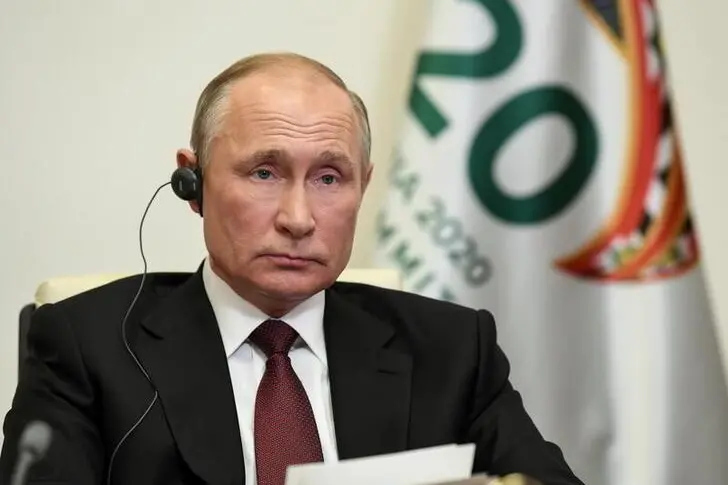PHOTO
JAKARTA/TOKYO - Russia and China watered down a communique being drafted by heads of the Group of 20 major economies on Friday to remove a reference to "current" geopolitical tensions clouding the global economic outlook, sources at the talks said.
The meeting of G20 finance ministers and central bankers took place both virtually and in Jakarta, with a final, English-language communique due to be circulated afterwards.
An early draft of the text seen by Reuters already contained no direct reference to the crisis on the Ukraine-Russia border, saying only that the G20 would monitor risks, "including those arising from (current) geopolitical tensions."
Communique-drafters use brackets for language that has not been agreed by all at the table. Sources told Reuters that both Russia and China asked for the word "current" to be removed.
Sri Mulyani Indrawati, finance minister of host Indonesia, told local reporters that it had taken time to arrive at the final wording "because of course at the same time in the room were countries involved in the geopolitical tension mentioned."
The most recent English-language draft seen by Reuters read: "We will also continue to monitor major global risks, including from geopolitical tensions that are arising, and macroeconomic and financial vulnerabilities."
That vaguer language contrasts sharply with a warning by finance ministers of the G7 group of large western economies on Monday that Russia would face "massive" economic consequences if it chose to invade Ukraine. Neither Russia nor China are members of the G7.
Sri Mulyani said the toughest sticking points involved the reticence of some countries to endorse carbon-pricing as a tool to tackle climate change, and how to help poor countries whose debt burdens have got worse during the coronavirus pandemic.
"Here, the process is not completed," German finance minister Christian Lindner said.
Earlier, one source at the talks said China, by far the largest bilateral creditor, had baulked at the idea of accepting outright haircuts on debt.
On other subjects, the latest draft of the G20 text pledged to use "all available policy tools to address the impacts of the pandemic," while warning that future policy space was likely to be "narrower and uneven."
Inflation is currently elevated in many countries due to supply disruptions, a mismatch in supply and demand, as well as rising commodity and energy costs, the draft communique said.
"Central banks will act where necessary to ensure price stability in line with their respective mandates, while remaining committed to clear communication of their policy stances," the draft read.
The diverging pace of recovery from the pandemic is complicating the policy path for central banks. Expected steady interest rate hikes by the U.S. Federal Reserve have drawn attention to the potential fallout for emerging markets.
While cases of the Omicron variant of COVID-19 are receding in many wealthy countries, they are still rising in many developing nations including host country Indonesia.
The draft text also noted agreement to make sure that a landmark deal last year setting a global minimum level of corporate tax could be implemented in 2023.
(Additional reporting by Christian Kraemer, Jan Strupczewski, Leigh Thomas; writing by Mark John; editing by John Stonestreet) ((leika.kihara@thomsonreuters.com; +813-6441-1828; Reuters Messaging: leika.kihara.reuters.com@reuters.net))





















